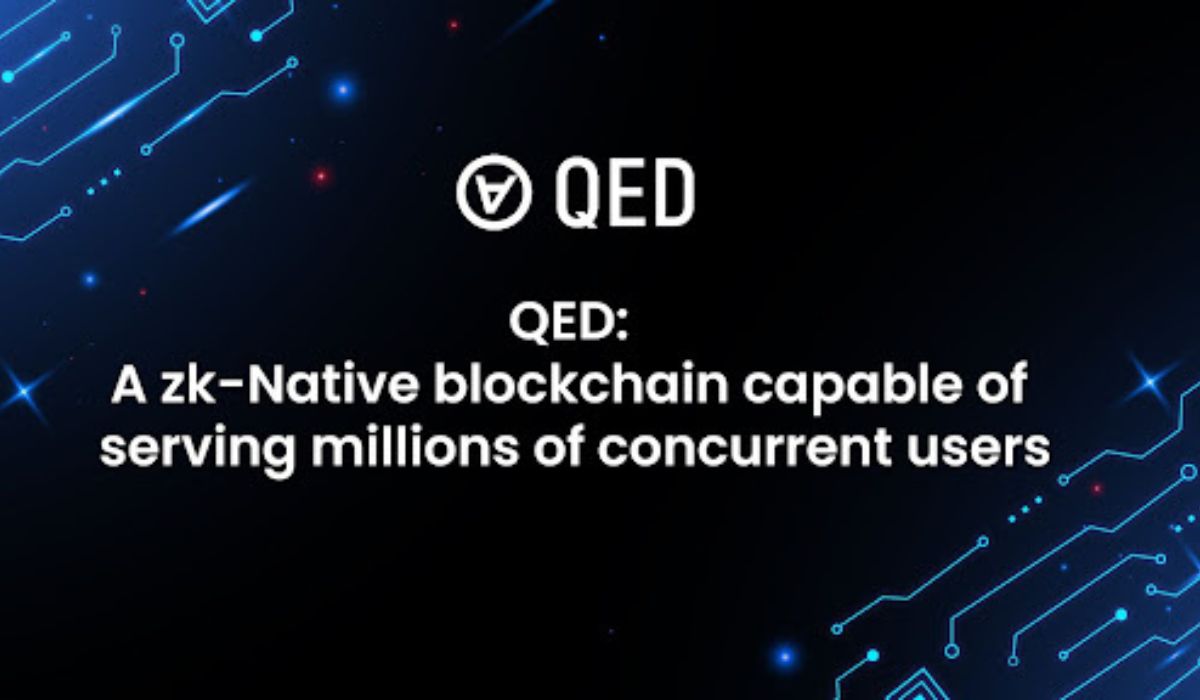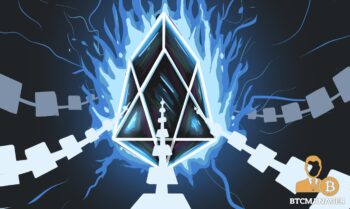
2023-7-18 11:26 |
QED, the world’s first ZK 2.0 blockchain protocol, was recently introduced by Open Asset Standards. Adopting blockchain technologies in Web2 use cases like social networks, traditional finance, and gaming has previously been hindered by TPS restrictions. In contrast to existing zero-knowledge blockchain protocols, QED has a novel state model that is horizontally scalable.
QED verifies all transactions end-to-end via proof recursion (verifying a zero-knowledge proof in a zero-knowledge proof), allowing it to scale without sacrificing security or decentralization. This scaling is made possible by improvements in fast recursive zero-knowledge proofs. The result of this decentralized recursive proving process is a single block proof that an Ethereum smart contract can verify. As a result, the protocol is not dependent on an incentive-based consensus system that is susceptible to collusion, hacking, and misaligned incentives but only on the Proof of Math itself.
QED eliminates the requirement for a zk-VM by compiling smart contract functionality straight to zero knowledge circuits. This makes it the first zk-Native blockchain and the first to serve billions of users in a single block. A new privacy-centric internet where transactions are private by default and sensitive data never has to leave a user’s device is made possible by QED’s revolutionary ZKP approach, enabling users to prove their transactions on their own device in milliseconds.
Open Asset Standards announced QED’s official Dapen Smart Contract IDE along with the QED Protocol announcement. With Dapen, Web2 developers can create zk Smart Contracts in the world’s two most widely used programming languages, JavaScript and Python, which have a developer market share that is 357 times more than Solidity’s tiny 0.1% developer population.
Dapen has incorporated support for Markdown smart contracts, allowing even non-technical people to construct smart contracts in English leveraging their integration with multiple large language AI models (LLMs), like ChatGPT, making blockchain accessible to more developers than ever before.
With the help of Animoca Brands’ fund Sparkle Ventures, whose General Partners include Yat Siu, co-founder of Animoca Brands, and Sebastien Borget, co-founder of Sandbox, QED is poised to gain significant traction in the gaming industry, which can already accommodate millions of concurrent players. For the first time, large-scale gaming is able to connect with blockchain technologies like dynamic NFTs because to QED’s horizontal scaling strategy, which makes it possible to increase transaction processing capacity by merely adding additional proving nodes to the network.
The QED core team is made up of a diverse team from both Web2 tech giants and Web3 titans, like Binance, reflecting the protocol’s ambition to link Web2 and Web3. It is led by founder and CEO Carter Feldman, a former child hacking prodigy and reverse engineer.
origin »Bitcoin price in Telegram @btc_price_every_hour
High Performance Blockchain (HPB) на Currencies.ru
|
|

















